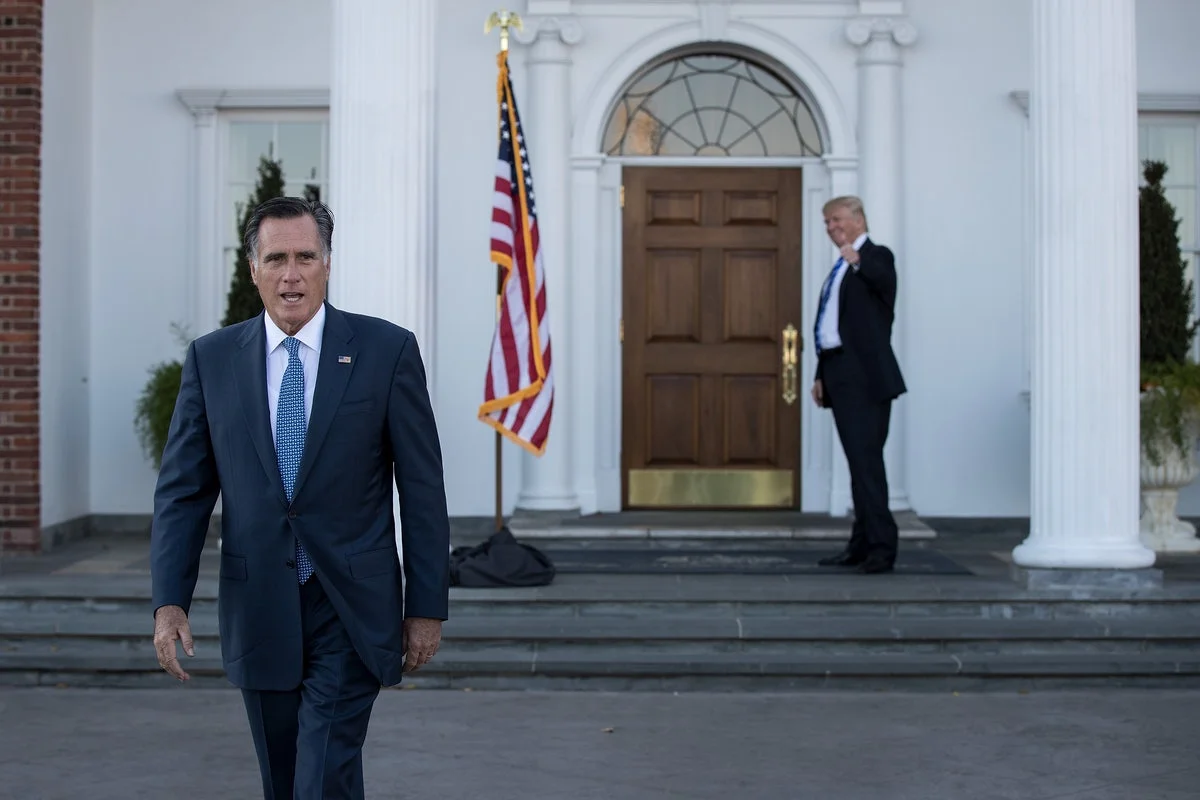How "Senator" Romney Could Cost Trump Utah By Luke Perry
Mitt Romney is announcing his candidacy to fill Orrin Hatch’s Senate seat. The opportunity for Romney to follow the longest serving Senator from Utah, who surpassed Mormon great and Latter-Day Saint (LDS) Apostle Reed Smoot, is too ripe of a political opportunity for an ambitious, historically minded, and duty bound politician.
George Frey/Getty Images
A Senator Romney would likely continue his critical position toward Donald Trump that was on full display during the 2016 campaign, most notably at the University of Utah, where Romney issued an unprecedented indictment of Trump’s character and leadership. Romney eviscerated his business acumen, general intelligence, national security credentials, and personal conduct, culminating in the encouragement of GOP primary voters to support anyone but Trump.
Carolyn Kaster/Associated Press
Romney’s subsequent meeting with Trump regarding the Secretary of State position was more about his own sense of duty and ambition, and Trump’s gamesmanship, than an embrace of his presidency. Romney quickly criticized the president, calling for Trump to apologize for his response to Charlottesville, which “caused racists to rejoice.” Romney’s deep concern about Russian aggression famously dates back to his 2012 debate with Barack Obama, putting him immediately at odds with the administration and the intensifying Mueller investigation.
Moreover, Romney would not have the institutional pressures Hatch accumulated in his committee and party leadership roles over forty years of service. In fact, Romney would be a prime candidate to continue the work of fellow Mormon Jeff Flake. Flake was politically freed to assume this role by not seeking reelection. Romney would come to office with a unique Mormon constituency providing strong bonds of trust and support.
As I document in my book Mitt Romney, Mormonism, and the 2012 Election, Romney’s family has deep roots in Mormon history, while Mitt has been a respected religious leader dating back to his mission, where he distinguished himself overcoming a life threatening tragedy. Romney was central in saving the 2002 Olympics hosted by Utah, a pivotal moment in the development of his political career, and became the first LDS presidential nominee of a major party, the centerpiece of the “Mormon Moment.”
Trump should have bigger concerns with Romney than his criticism: the implications for Utah in 2020. Utah is certainly not a typical swing state, having voted consistently Republican in presidential elections since 1968. At the same time, Trump has overturned many conventional norms, and Romney threatens to usher in another, a Republican loss.
Evan McMullin won 21 percent of the Utah vote in 2016. If Romney joins the Senate and backs McMullin, like Senator Mike Lee did, this could result in a significant bump at Trump’s expense. Romney won 72 percent of the Utah vote in 2012 compared to Trump’s 45 percent in 2016. Romney’s individual pull, coupled with unified Senate opposition to Trump, could be influential in a primary, should that materialize, as well the general.
When Mitt Romney asked Utahans to “think of Donald Trump’s personal qualities, the bullying, the greed, the showing off, the misogyny, the absurd third grade theatrics,” and “imagine your children and your grandchildren acting the way he does,” it meant something deeper within the Mormon tradition, where righteousness and family, are supreme on earth and in eternity. There is little doubt that McMullin, a devout Mormon and Utah native, better embodies Mormon political and social values than the president.
Utah remains thoroughly Republican and of course, a lot will happen in the next three years. Still, the unique influence of LDS culture permeating Utah, with its prioritization of individual morality and character, seems even less compatible with the Trump presidency should Romney join its Senate delegation.
This article was updated February 14, 2018.
Luke Perry (@PolSciLukePerry) is Chair and Professor of Government at Utica College.








